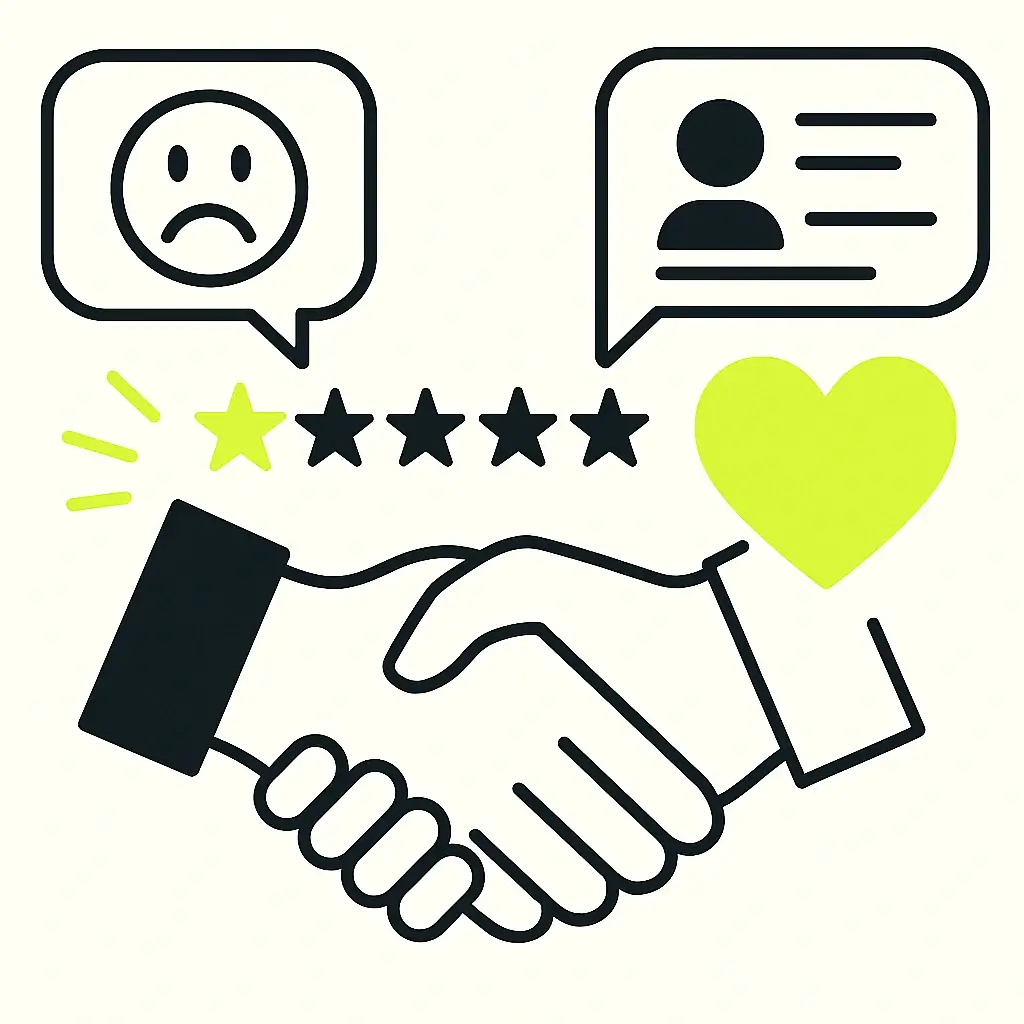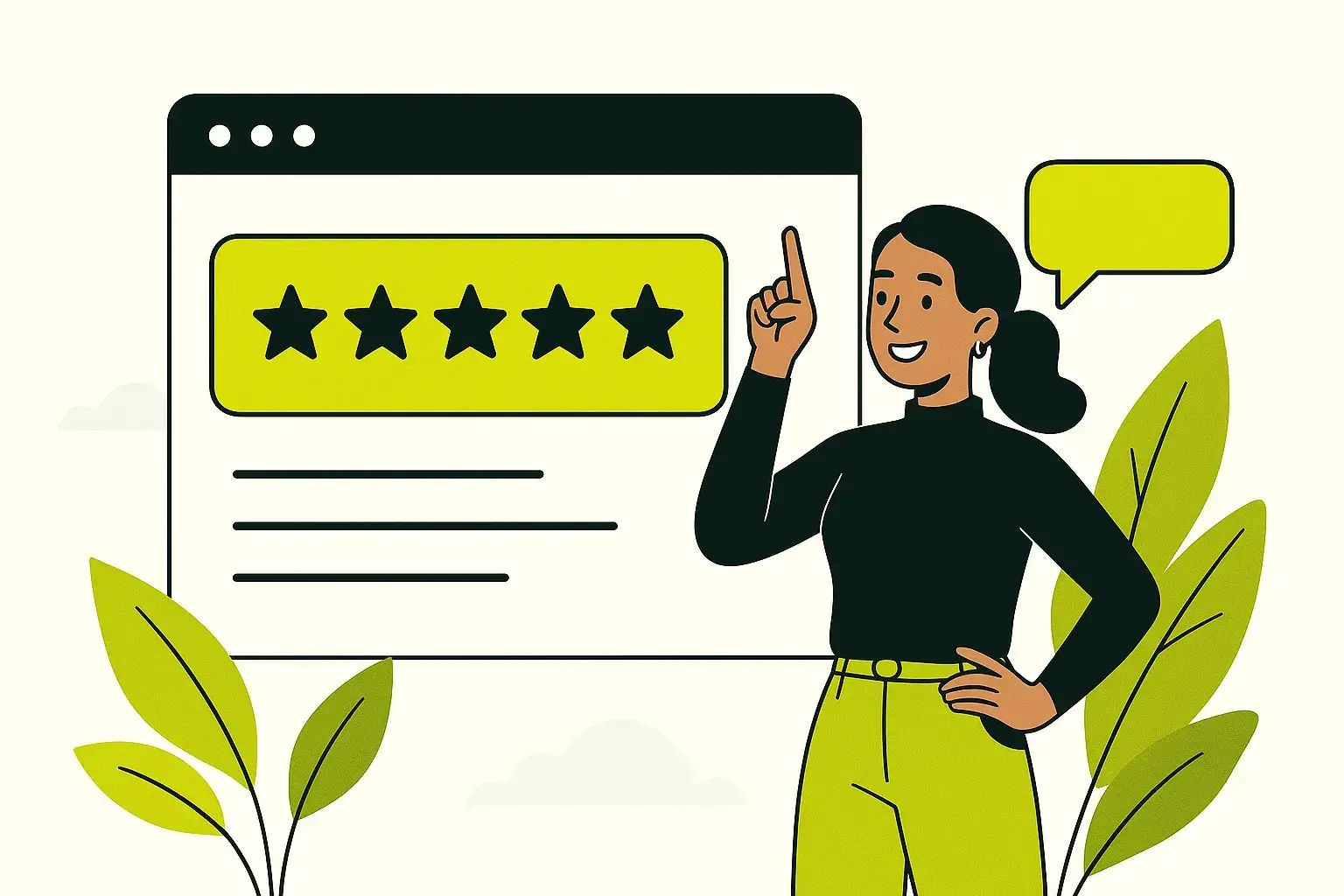Extract structured data from hundreds of documents at the same time.

A Full Guide to Managing Bad Reviews Without Losing Your Cool (or Customers)
If you run a business in Vancouver Washington or Portland Oregon, a single bad review online can sting.
It can feel like your reputation is falling apart with just one unhappy customer.
But here’s the truth: a bad review is not the end. In fact, it can be the beginning of something better — a stronger reputation, a better customer experience, and a smarter way to grow.
This article will walk you through everything you need to know about handling negative reviews like a pro.
You’ll learn how to respond with confidence, what to do about fake feedback, and how to use criticism to actually win more business.
Let’s break it down, step by step.

In Vancouver and Portland, people make choices fast.
Hungry? They Google.
Need a plumber? Yelp.
Looking for a daycare? Facebook groups.
That means your reviews are often the first impression people get of your business.
Your online reputation affects:
Here’s the thing: most customers don’t expect perfection.
What they want is honesty, consistency, and to feel heard.
One or two bad reviews won’t ruin you.
But how you respond?
That can make or break your reputation.
More importantly, search engines are tracking what customers are saying about you, too.
If your reviews reflect trust and reliability, Google is more likely to show you to other potential customers.
And in highly competitive areas like Portland or Vancouver, that search boost matters.

A bad review can:
But that same review can also:
Remember: most people know not all reviews are fair.
They’re looking to see how you handle the heat.
A thoughtful reply to a negative review can often have more impact than a dozen glowing ones.
It tells the world you listen, you care, and you’re constantly improving.
That makes people want to work with you.

First, take a breath.
Don’t respond angry.
Then:
"Hi Sarah, thank you for your feedback. We’re really sorry your visit didn’t meet expectations. That’s not the experience we aim for, and we’d love a chance to make it right. Please contact us at support@yourbiz.com so we can help."
Short. Simple. Empathetic.
Your reply isn’t just for the unhappy customer — it’s for everyone else who reads it.
That’s why professionalism, kindness, and accountability matter more than ever in your reply.

They Get Defensive or Ghost Business owners either lash out or go silent. Both make you look guilty. The smart play? Calm, helpful, fast replies that show accountability.
You Can Be the Local Standard Most of your competitors are still winging it. If you have a review strategy, response playbook, and happy customer outreach system—you win the reputation war.
Sometimes you get reviews from people who were never customers.
Or from a competitor pretending to be a customer.
Or a person who clearly got the wrong business.
Here’s how to handle it:
Example Response: "Hi there, we take all reviews seriously, but we can’t find a record of your visit. We’d love to help if there’s been a mix-up. Please reach out at [email]."
Stay calm. Don’t argue.
Let real customers see your professionalism.
Most review platforms have clear rules about fake reviews, and if you make your case well (with proof or patterns), they will often take them down.
But again — the gold is in your response.

Simple framework to rank higher, faster.
Easy local SEO for small business owners. No jargon. Download your free guide and start outranking competitors
Some people just want to stir up trouble.
If someone leaves hateful or clearly abusive comments:
Ask loyal customers to back you up with their honest experiences.
A few good voices can silence the loud, angry ones.
Also, don’t underestimate the power of humor and humanity when appropriate.
A calm, confident tone shows strength and emotional intelligence.

Happy customers rarely think to leave reviews unless you ask.
Train your staff to spot happy moments and say: "Hey, if you had a good experience, a quick review on Google really helps us."
Or send a follow-up email/text with a direct review link.
Make it easy.
Ask while the positive experience is fresh.
We have tested that 9 times out of 10 SMS does better than email, since SMS has a 99% open rate compared to an email at 48%
You can also incentivize reviews with a monthly giveaway or public shoutout (as long as you follow the review platform’s rules).
The more good reviews you have, the less power bad ones carry.

Negative reviews often show patterns:
Instead of brushing it off, ask:
Fix it, then say so in your public responses.
It shows you listen and care.
You can even turn these moments into brand wins.
Share stories (anonymously) of how customer feedback helped improve operations or led to training that made things better.

Good reviews are free marketing.
Don’t hide them.
Post them:
Let your reputation do the talking.
And when you repost those reviews, add context.
Why did this customer love your business?
What was the win?
Turn the testimonial into a short case study.
Use tools like:
Check once a day or get alerts so you can reply fast.
You can also assign one team member as the "review responder" to ensure everything gets handled consistently and on-brand.

The best part?
When you respond well, apologize genuinely, and fix the issue—that same person might come back.
Even better?
They might update the review.
And even if they don’t, other people reading it will see how you handled it. That builds trust.
It also turns your team into problem-solvers, not just service providers.
That mindset shift builds stronger internal culture, too.
If you’re a local business in Portland OR or Vancouver WA, your reviews aren’t just stars on a screen.
They’re your storefront online.
Respond with care.
Learn from feedback.
Show off your wins.
And never forget: one bad review isn’t the end of the story.
It might be the start of your comeback.
Need Help?
We help local businesses in Vancouver and Portland manage their online reviews, fix reputation problems, and grow their reach.
If you're ready to get smart about reviews, reach out today.

Bad reviews don’t kill your brand. Silence and ego do. When you respond right, people trust you more than if the bad review never happened.

Extract structured data from hundreds of documents at the same time.

Extract structured data from hundreds of documents at the same time.